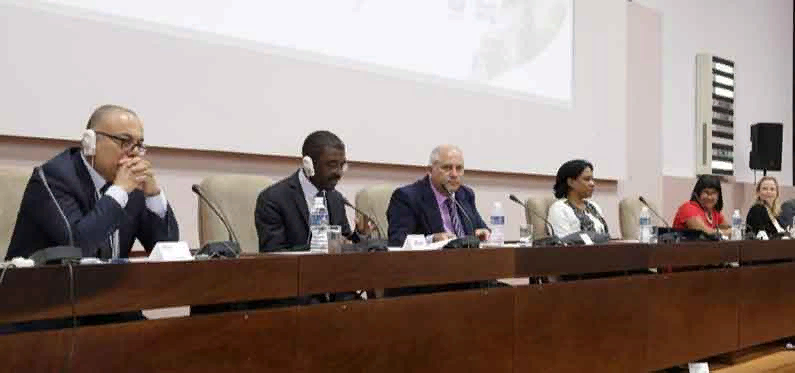UNESCO’s proposal to make culture an objective of the 2030 Agenda for Sustainable Development was one of the most heard claims this Thursday at the Havana Convention Center.
Ministers of Culture and senior officials of the member countries of the Group of 77 plus Cuba, attending the meeting, reiterated the initiative launched last year at the World Conference of the United Nations Educational, Scientific and Cultural Organization (UNESCO), held last September in Mexico.
At the Havana event, they agreed on culture’s transcendental value in the face of the challenges of Covid-19 and how it helped as a source of resilience and solidarity to face isolation during the pandemic.
The Venezuelan head of Culture Ernesto Villegas supported the pronouncements of the meeting and called for promoting respect for diversity and national cultures.
On the need to promote culture as an essential global public good, China’s vice minister of the sector Li Qun highlighted the initiative of global civilization by his Government in defense of the traditions, heritage and history of all peoples.
For Colombia, its Vice Minister of Development and Heritage, Adriana Molano urged promoting more inclusive alliances from culture, through diverse solutions that allow us to face current challenges. She referred to the experience of her country for the solution of the armed conflict through a culture of peace, which is allowing the transformation of imaginaries, society and fight against all forms of inequality.
For his part, the Indonesian Minister of Education and Culture, Hilmar Farid, stated that the excessive commercialization of culture has had serious negative consequences in terms of respect for the various artistic manifestations, their cultivators and national traditions.
Meanwhile, the head of Honduras, Anarella Vélez, explained everything her government is doing to confront the hegemonic attempts of big capital and the right-wing and to develop culture so it can be consolidated as the cornerstone of its policy of good living.
The exchange also led to the denunciation of the Angolan Minister of Tourism and Culture, Filipe Zau, who warned about the theft and trafficking of cultural property faced by African nations.
Opinions were shared at the meeting on the importance of promoting culture as a global public good, as well as South-South cooperation mechanisms and alternatives for sustainable development. Criteria, experiences and good practices on the role of creative economies and cultural industries in developing countries were also shared.
The representatives of the 75 participating countries also addressed the integral management of cultural heritage and the contribution of tourism dedicated to this field in the sustainable development of less advanced nations.
The meeting is expected to adopt a final declaration aimed at concrete actions to promote culture and its link with multilateralism, one of the priorities of the United Nations.


